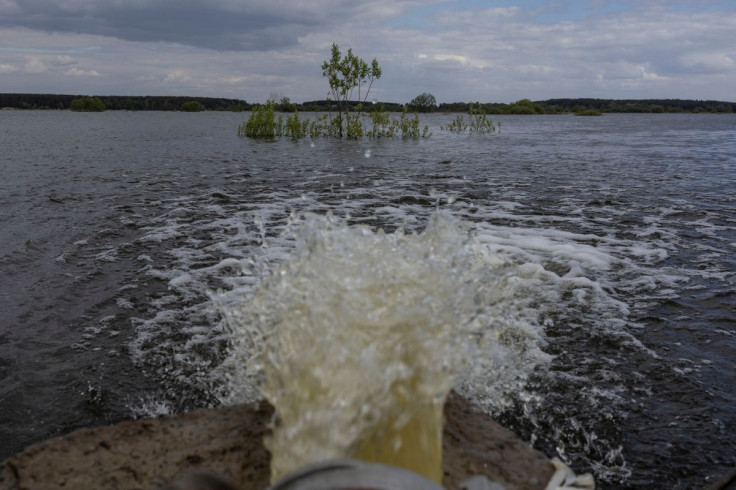1 Million Ukrainians May Be Without Drinking Water As Russia Releases Water From Reservoir

KEY POINTS
- A Ukraine official said there has been a "colossal drop" in the water level of Kakhovka Reservoir
- Ruslan Strilets warned that the crisis in the reservoir would affect the cooling of reactors of a nuclear power plant
- Ukrainian Prime Minister Denys Shmyhal urged their allies to pressure Russia over the reservoir crisis
A Ukrainian official has warned that at least 1 million of their residents would have no access to drinking water as Russian forces continue to release water from the Kakhovka Reservoir.
In his press briefing at the Ukraine Media Center, Ruslan Strilets, the Ukrainian minister for environmental protection and natural resources, said there has been a "colossal drop" in the water level at the reservoir, which could lead to an "ecological disaster."
"The situation that is happening today at the Kakhovka Reservoir: the colossal drop in the water level is already leading to negative consequences, and we understand the risks in the future. If the normal level of the Kakhovka Reservoir is 16 meters, today it is 13.83 meters. In the future, this may lead to over 1 million Ukrainians being left without drinking water," Strilets said.
On top of the shortage of drinking water, the Ukrainian environmental minister also warned that the situation at the reservoir could affect the cooling of reactors of the Zaporizhzhia Nuclear Power Plant, the largest in Europe.
"And lowering the level below 12 meters will lead to an ecological disaster since we can simply lose a large amount of biodiversity. Such actions by Russia are in fact another attempt at nuclear terrorism because cooling of reactors of Zaporizhia NPP could be at risk," Strilets said.
Strilets said he has already raised the reservoir issue with Virginius Sinkavičius, the European Union commissioner for environment, oceans and fisheries, during their meeting in Kyiv Friday.
Meanwhile, Ukrainian Prime Minister Denys Shmyhal urged their international allies to pressure Russia to close the floodgates of the Kakhovka Reservoir and restore its hydro-technical structures.
Shmyhal also urged Russia to allow Ukrainian specialists to restore the Kakhovka Hydroelectric Power Plant's structures.
The crisis began in November 2022 when Russian forces, fearing the advancing Ukrainian troops, blew up a road over the water reservoir and opened sluice gates, releasing water out of the dam.
Satellite images obtained by NPR showed that the water levels at the reservoir had reached their lowest point in three decades.
Ukrainian authorities also suspect that the Russians intended to drain the reservoir to flood the area and prevent Ukrainian troops from crossing the Dnipro River.
But David Helms, a retired meteorologist who worked recently at the National Oceanographic and Atmospheric Administration (NOAA), said Russia also appeared to have used the Kakhovka Reservoir to refill a network of reservoirs in the occupied region of Crimea.
When Russia annexed Crimea in 2014, Ukraine cut off its water supply from Kakhovka. But as Russia launched its military offensive last year, one of its goals was to capture the reservoir and restore Crimea's water supply.
Before the war began, the Kakhovka Reservoir supplied water irrigation to roughly 494,000 acres of Ukrainian farmland that was used to grow sunflowers, grain and vegetables.

© Copyright IBTimes 2025. All rights reserved.






















